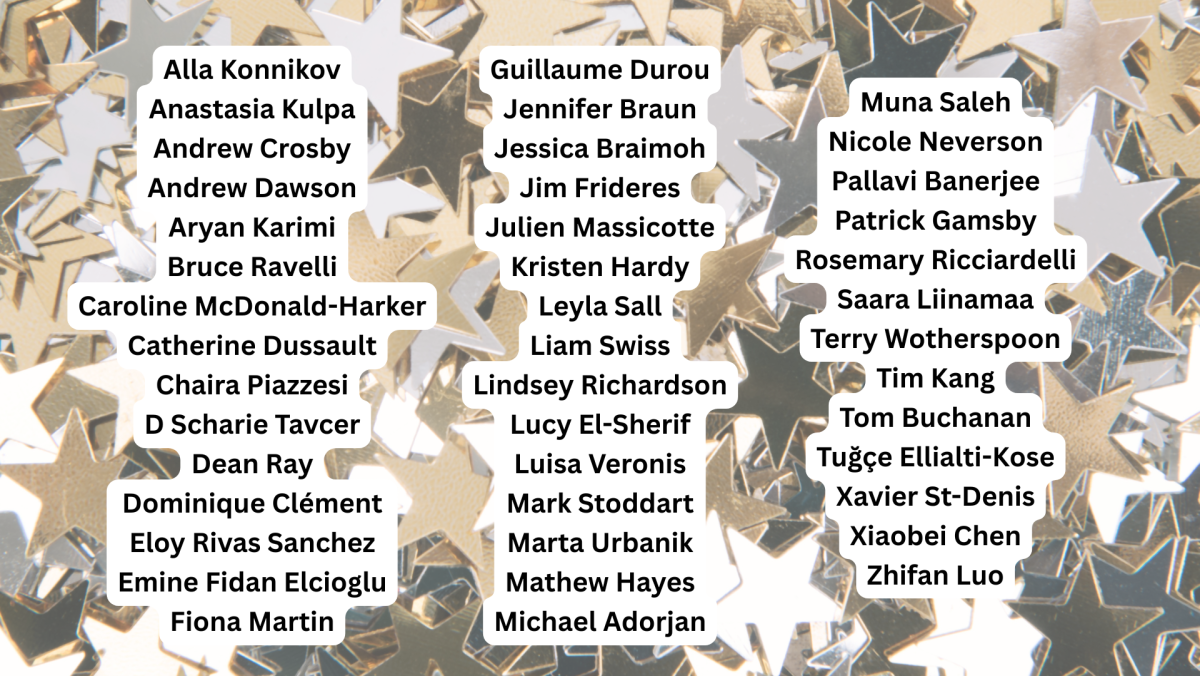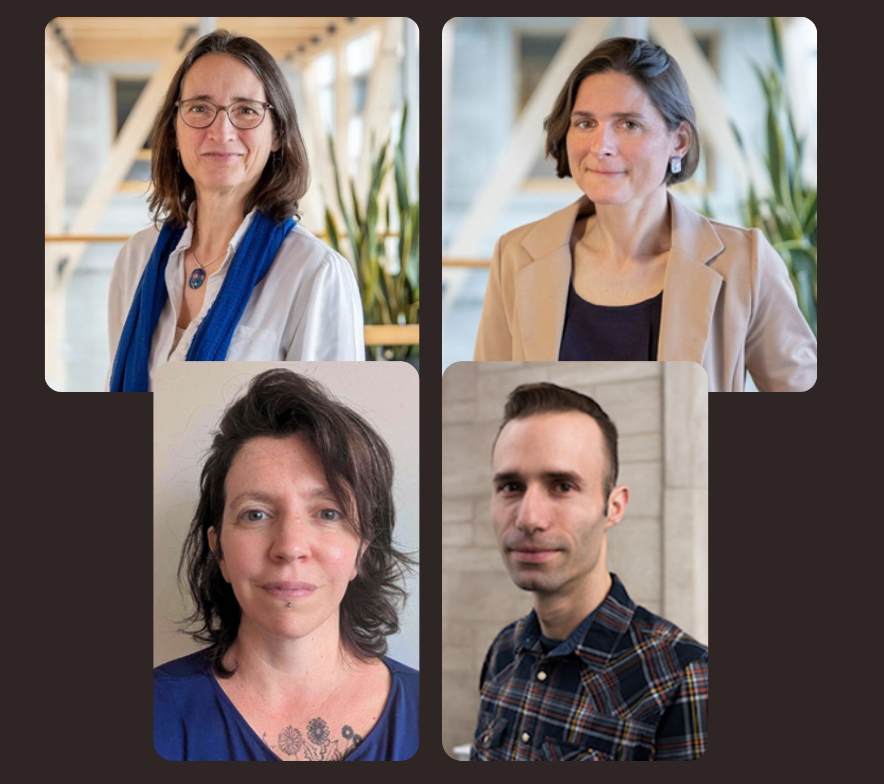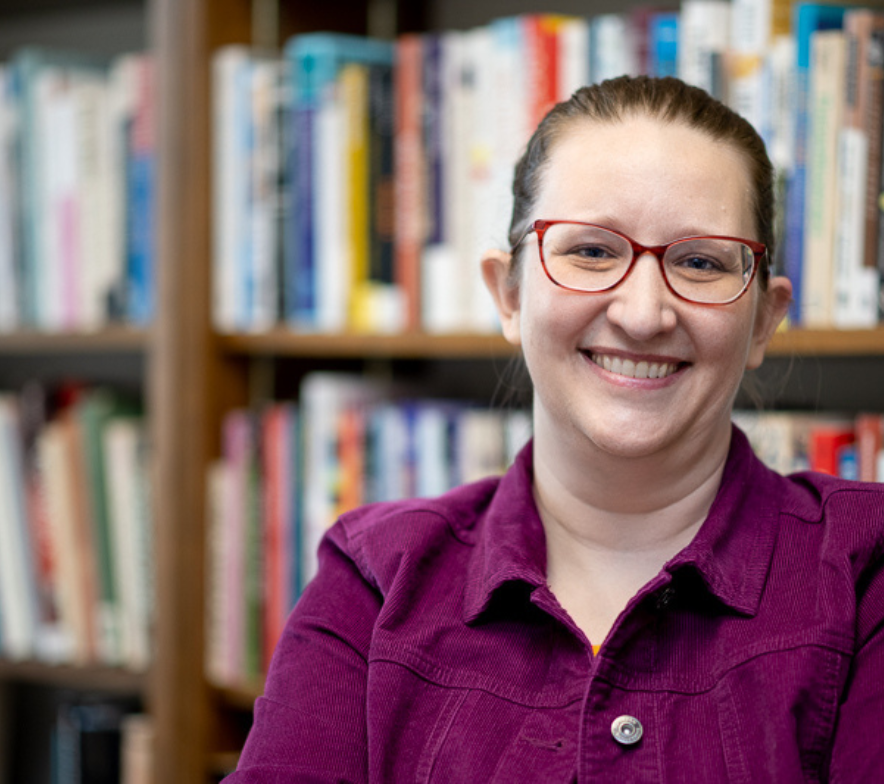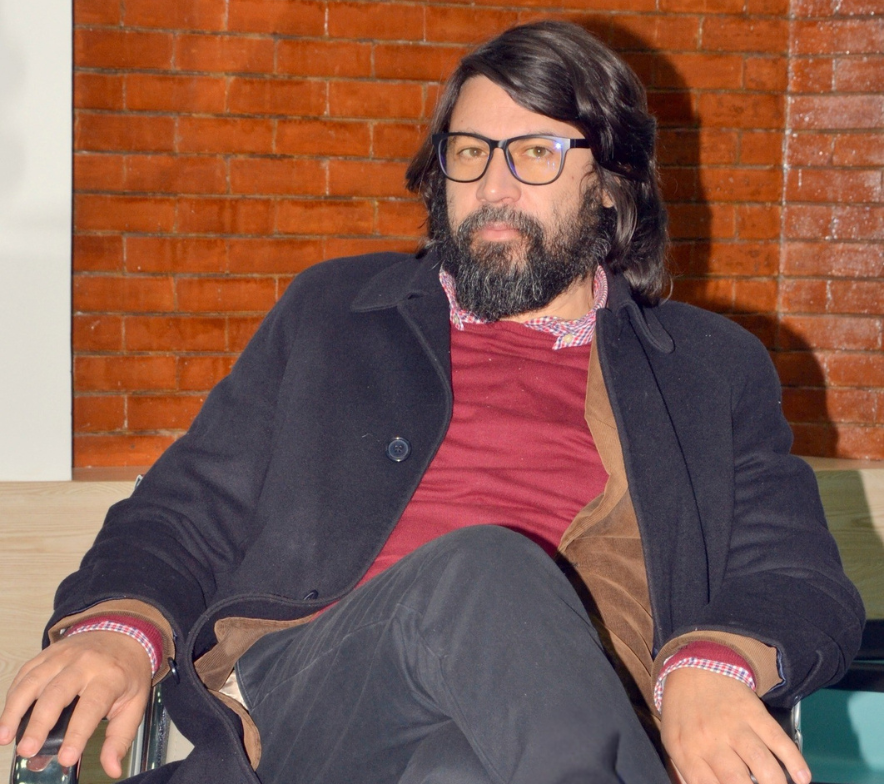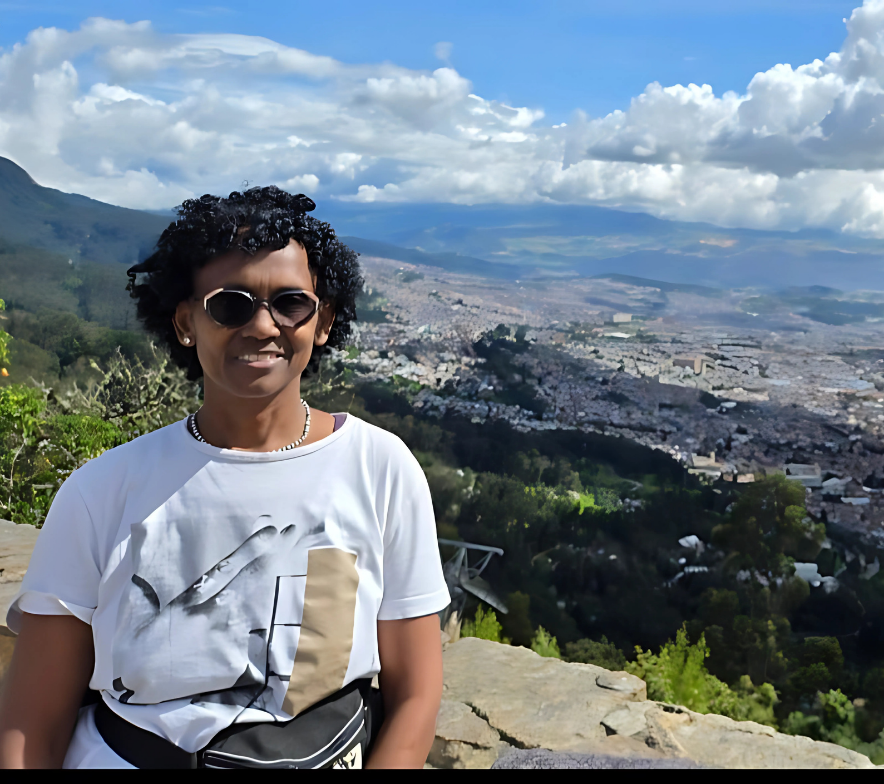2025 Recipients
Click on the award to meet the recipients!
2025
|
Angus Reid Applied Sociology AwardDominique Clément |
Angus Reid Applied Sociology Student AwardRiann Lognon |
Best Student Paper Award - PhD CategoryHarmata Aboubakar |
Best Student Paper Award - MA CategoryAdhika Ezra |
|
Best Student Paper Award - Undergraduate CategoryJulia Moniz-Lecce |
Canadian Review of Sociology Journal Best Article AwardDanièle Bélanger, Adèle Garnier, Laurence Simard-Gagnon, Benoît Lalonde |
Canadian Review of Sociology Journal Best Article Award - Honourable MentionRoger Pizarro Milian, Dylan Reynolds, Rob Brown, David Walters(Not pictured; Firrisaa Abdulkarim, Naleni Jacob, Gillian Parekh) |
Canadian Sociology Book AwardSarita Srivastava |
|
Canadian Sociology Book Award - Honourable MentionLisa-Jo van den Scott |
Early Investigator AwardRhea Ashley Hoskin |
Global Sociology AwardMohamed Fadil |
Outstanding Contriubtion to Sociology AwardAmal Madibbo |
|
Outstanding Service AwardJohanne Jean-Pierre |
Prix d'excellence en sociologie de langue françaiseAudrey Rousseau et Louis Chartrand |
Student Awards |
Adjudication Committee Members |
Angus Reid Applied Sociology Award
Dr. Dominique Clément, University of Alberta
Dr. Clément is a professor and chair of the Department of Sociology at the University of Alberta. He is Canada’s expert on the Sociology of human rights and a leading authority on the history of social movements. Over his career, he has published numerous papers and reports on human rights in Canada as well as made public presentations around the world. These works have been published in many different venues as well as in many different languages.
Dr. Clément has a long history of community engagement across the country and has pursued his commitment to human rights education. His educational initiatives reveal how community-identified initiatives apply to social science research strategies. He has disseminated his work through a variety of outlets; including major academic journals, high school textbooks, the media, community organizations as well as through regular personal presentations at local libraries and other venues across the country. His website, HistoryOfRights.ca, is a popular resource for anyone focusing on issues of Human rights in Canada. Moreover, his community focus includes his teaching efforts where he inspires his students to actively engage with their communities.
How scholars can collaborate with NGOs, community organizations as well as with Government agencies is demonstrated by Dr. Clément’s research. In conducting his work, Dr. Clément has forged a vast network of human rights commissions across the country. This effort required the development of a collaboration among private and public agencies such as the human rights commissions across Canada. Today, his work has proven to be a valuable resource for non-profit organizations in assessing how funding is allocated as well as informing community and state agencies regarding innovative methodological innovations in using digital research tools.
Over his career, Dr. Clément has volunteered with non-profit organizations, testified regarding his research before the Senate, consulted for human rights commissions and hosted workshops for NGOs, as well as being a major contributor to a documentary on human rights in Alberta. In a field of study that has been historically dominated by legal studies, Dr. Clément’s prominence among experts on human rights law has transformed this field of study through the application of sociological methods and research tools. His commitment to community-based research is exemplified through his leadership role in the creation of the Canadian Museum for Human Rights. Dr. Clément is committed to the principles of equity, diversity, and inclusion throughout his work—both as an academic and practitioner.
His work has made a substantive contribution to translating academic research into community engagement that has benefitted community organizations, state agencies, and students. Equally important is the influence of his work in the development of public policy. As one of Dr. Clément’s letters noted, he is “passionately committed to applied Sociology and has an outstanding record of knowledge mobilization and translating his expertise as a sociologist for numerous publics.” His work constitutes a major contribution to public policy and the betterment of our society.
Angus Reid Applied Sociology Student Award
Riann Lognon, University of Calgary
The 2025 recipient was endorsed by Dr. Ariel Ducey as Head & Associate Professor in the Department of Sociology at the University of Calgary.
Riann Lognon is a PhD student in Sociology at the University of Calgary. After completing an interdisciplinary bachelor’s degree from Quest University Canada and working in urban agriculture and resettlement services for three years, Riann completed her MA thesis research co-designing community gardening and anti-racist storytelling with newcomer youth of colour as a part of the Youth Anti-Racism and Integration Collective. Building on this research and her interests in critical migration studies, Southern feminist qualitative research methods, and urban place-making, praxis-oriented research, Riann hopes to continue learning about racialized newcomer youth and family engagements with land, embodiment, and food in her community-engaged doctoral research.
Best Student Paper Award - PhD Category
Harmata Aboubakar, University of Toronto
Shared History Yet Divergent Memory: Reconstructing the Violence of Chad’s Cut-Cut Massacre
This is a comparative study of the 1917 Cut-Cut Massacre in Chad, central Africa, in which French colonial forces beheaded religious leaders as a public punishment aimed at suppressing the influence of Islam. I explore the divergent perceptions of the massacre among the Chadian diaspora in the Western world and local communities in Chad. I seek to uncover how these groups construct meanings around - and interpret the memory of - this violent historical event. Drawing upon political sociology and the literature on memory and sense-making, I investigate how these two groups construct and interpret the meanings of colonial violence, focusing on contexts, experiences, and conceptual understandings. Collective memories and interpretations of violent historical events vary widely and are frequently subject to debate. Indeed, various memory agents may hold differing views regarding the meanings attributed to events associated with cultural trauma, punishment, and atrocities (Halbwachs 1992; Assmann 1995; Olick 1999). This case sheds light on how religious and cultural contexts offer tools and repertoires for interpreting historical violence among groups with a common history and shared religious beliefs. I apply theoretical lenses, such as sense-making theory (Weick et al. 2005), cultural trauma (Alexander 2004), and frame analysis, to archival materials. This comparative approach allows for an exploration of the distinct frames used among Chadians in the homeland and those in the diaspora to make sense of colonial violence.
The award adjudication committee was impressed with the original and thorough historical sociological analysis in this paper. It was both theoretically rich and methodologically rigorous. Through addressing memory of a historical event, the paper makes significant contributions to the understanding of how communities frame past tragedies to serve contemporary aims.
Best Student Paper Award - MA Category
Adhika Ezra, University of Regina
The Role of Milieu in Governance: The Case of Homelessness and Extreme Weather in Regina
Extreme weather events increase the risk of disaster for people experiencing homelessness (PEH) who are exposed to harsh temperatures. Based on a qualitative case study in Regina, Saskatchewan involving 22 service providers, city officials, and advocates, I use the concept of governmentality to analyze how homeless governance and extreme weather responses contribute to the marginalization of PEH. Governmentality coordinates social life by considering the non-linear interrelations of rationalities, societal rules and expectations, governance techniques, and the environment. In an advanced liberal society, governance relies on shaping the milieu and determining possible fields of action that align with the desired outcomes of governance.
The findings show that shelter bans, shelter rotations, encampment evictions, move-along orders, and people’s reluctance to enter shelters are attached to rationalities of responsibilization, colonial Othering, private property, and the market. These forms of governance shape the milieu by dictating spatial circulations which end up denying PEH access to safe shelters. The milieu is also shaped by weather; during extreme weather, PEH is pressured to enter shelters. PEH who enter face the risk of re-traumatization and must accept disciplinary rules. Others without a shelter find ways to adapt, but face increased risk of getting injured-or worse-from maladaptation or direct exposure to extreme temperatures. By describing the interaction between technologies and rationalities of governance, weather, and spatial circulation, I argue that weather is accounted for by governmentality: 1) as part of the milieu that shapes people’s possible field of action, indirectly guiding people to consent to be disciplined; 2) to punish PEH who are unable to be “responsible.” Environmental disasters are a product of homeless governance that marginalizes PEH.
This outstanding MA-level paper offers a compelling and theoretically grounded analysis of how neoliberal and settler colonial governance structures shape the lived experiences of people experiencing homelessness (PEH) in Regina, Saskatchewan — particularly during extreme weather events. Drawing on 22 qualitative interviews with service providers, city officials, and advocates, the author skillfully applies Foucault’s concept of governmentality and milieu to explore how space, climate, and institutional practices intersect to produce exclusion and risk. The paper is notable for its nuanced attention to the complexities of trauma, substance use, and Indigenous dispossession, and for its clear, well-structured argumentation. The committee was especially impressed by the paper’s ability to synthesize theory and grounded research into a meaningful critique of policy and practice.
Best Student Paper Award - Undergraduate Category
Julia Moniz-Lecce, University of British Columbia
Racial Disparities in Homeschooling: Exploring Motivations, Barriers, and Access to Alternative Education in Canada
Since the COVID-19 pandemic, homeschooling has seen a significant rise in popularity across Canada. The advancement of online learning has helped make homeschooling more accessible than ever before, however, many families continue to face challenges with this method of learning. While research underscores the academic and social benefits of homeschooling, limited studies have examined how it intersects with existing racial inequalities in the Canadian education system. This study seeks to fill this gap by examining the motivations and challenges that racialized families encounter during their homeschooling journeys to better understand the broader implications of educational access and equity outside of the traditional schooling system. Data has been collected through a mixed-method approach, incorporating both quantitative and qualitative responses from an anonymous survey. Participants were recruited through online forums and community homeschooling organizations. They must have fit the criteria of being over 19 years of age, living in Canada, and being a parent or legal guardian of a homeschooled child. Although this project is ongoing, preliminary findings suggest that minority families encounter unique barriers and distinct motivations in their choice to homeschool. The findings from this study will contribute to the growing discourse on educational access and inform strategies to make homeschooling a more inclusive and accessible option for Canadian families.
This ambitious and innovative undergraduate paper investigates how race and ethnicity shape the motivations, barriers, and experiences of homeschooling families in Canada. Using an impressive mixed-methods design—including a large, original survey and qualitative thematic analysis—the author explores how racialized families navigate homeschooling as both a response to systemic racism and a means of cultural affirmation. The paper innovatively brings together Bourdieu’s theories of capital with Critical Race Theory to analyze how educational access is shaped by both structural inequality and community cultural wealth. The committee was impressed by the originality of the theoretical framing, the sophistication of the analysis, and the clarity of the writing. The paper not only fills a significant gap in Canadian educational research but also offers practical insights for policy and curriculum development.
Canadian Review of Sociology Best Article Award
Dr. Danièle Bélanger (Université Laval), Dr. Adèle Garnier (Université Laval), Dr. Laurence Simard-Gagnon (Université du Québec à Rimouski), and Benoît Lalonde (Université Laval)
Explaining immigration casework in federal Members of Parliament's district offices in Canada
Canadian Review of Sociology: Volume 61, Issue 3
The authors of this paper created a robust dataset that tries to understand factors that influence the disparities in service given to immigration files between federal electoral districts. The committee was impressed by the authors' methodological approach using information requests to Immigration, Refugee and Citizenship Canada to obtain data related to the volume of inquiries made by 338 MP federal district offices on immigration files on behalf of their constituents. In addition to the innovative data collection, the committee thought that this paper did an excellent job of dismantling embedded assumptions about the relationship between political ideology, gender, and ethno-cultural background of MP's and the degree to which they would dedicate time and resources for immigration case files in their districts. This work is timely and highly relevant given the significant political polarization on issues like immigration and identity politics and demonstrates that the work done in constituency offices is far less partisan than in other countries where similar offices exist.
Canadian Review of Sociology Best Article Award - Honourable Mention
Dr. Roger Pizarro Milian (University of Toronto), Dr. Dylan Reynolds (Cape Breton University), Firrisaa Abdulkarim (York University), Naleni Jacob (Independent Researcher), Dr. Gillian Parekh (York University), Dr. Rob Brown (York University), and Dr. David Walters (University of Guelph)
Canadian Review of Sociology; Volume 61, Issue 3
This paper leverages an unprecedented dataset to examine the stratification of post-secondary pathways by disability status. The authors link data from four government sources—the Toronto District School Board, provincial college and university enrolment records, and federal student loan and tax files—to explore how students from Canada's largest school board transition into post-secondary education in Ontario. The paper is clearly written and makes a novel contribution to the literature on educational inequality. The data uncover notable differences in post-secondary uptake based on disability status; however, these disparities largely diminish once relevant controls are introduced. Its contribution is both empirically grounded and thoughtfully situated within existing research.
Canadian Sociology Book Award
Dr. Sarita Srivastava, OCAD University
“Are You Calling Me a Racist?" Why We Need to Stop Talking about Race and Start Making Real Antiracist Change. (NYU Press, 2024)
The adjudication committee selected “Are You Calling Me a Racist?" Why We Need to Stop Talking about Race and Start Making Real Antiracist Change as an engaging, rigorous, and accessible book that makes an important theoretical as well as applied contribution to sociology by showing both how racial injustices are perpetuated in Canada and how we can make actionable changes through EDIA policies.
Using a variety of evidence including personal narratives, high profile events, and secondary research, the author argues that antiracism efforts by universities and other organizations, including corporations, are largely ineffective at reducing racism.
In the book, Sarita Srivastava unpacks the emotional and moral preoccupations with thwarting racial consciousness among White Canadians that lead us to greater conflict, drain our energy, and divert our resources. Using critical race theory, Indigenous critiques of whiteness, and critical phenomenology of race, the author argues that approaches to diversity and equity are too often governed by what the author calls ‘feel-good racial politics’ - the desire to both feel good and to be good - rather than to make concrete organizational changes.
The book makes a clear contribution to contemporary anti-racist theory and scholarship as well as public sociology providing a robust framework for change in its conclusion. With its accessible writing style, it can reach beyond academia and has the potential to make positive change in Canada's suppressed conversation about race, racism, and the implication of racial injustices.
Canadian Sociology Book Award - Honourable Mention
Dr. Lisa-Jo van den Scott, Memorial University
Walled-In: Arctic Housing and a Sociology of Walls. (Bloomsbury Publishing, 2024)
The adjudication committee selected "Walled-In: Arctic Housing and a Sociology of Walls", to receive an honourable mention as an innovative and evocative ethnographic monograph that reimagines “walls” as both material and symbolic agents of colonial violence and cultural resilience.
The book makes a substantial contribution to the sociology of colonialism, contemporary Inuit ways of life, and traditional Indigenous knowledge. The author skillfully argues that the Inuit are both literally and figuratively ‘walled-in’ by colonialism but also shows how they respond by reinventing and maintaining Inuit traditions.
The book meaningfully contributes to the sociology of space and Indigenous-settler relations in Canada and exemplifies the ethical and intellectual commitments of community-based, social justice-oriented research.
Early Investigator Award
Dr. Rhea Ashley Hoskin, University of Waterloo
The Canadian Sociological Association is proud to present the 2025 Early Investigator Award to Dr. Rhea Ashley Hoskin in recognition of her groundbreaking contributions to the sociology of gender, femininities, and gender-based violence. Dr. Hoskin holds a PhD in Sociology from Queen’s University and is currently a Postdoctoral Fellow at the University of Waterloo. Dr. Hoskin is a ground-breaking scholar whose work has reshaped the field through the development of femme theory, a transformative framework that centers marginalized feminine epistemologies and interrogates the systemic devaluation of femininity—what she terms femmephobia. Her research spans theoretical depth, methodological excellence, and applied impact, offering critical insights into gender expression, health, relationships, and violence across diverse populations.
A prolific and passionate researcher, Dr. Hoskin has published extensively and secured over $1.3 million in competitive funding and awards. She is the founding Editor-in-Chief of the Journal of Femininities, the foundational academic journal dedicated to this emerging field. Her work includes a diverse range of research areas — from gender-based violence and incel ideology to community health and military culture — demonstrating both the breadth and depth of her impact. Dr. Hoskin’s extensive scholarship is coupled with commitments to mentorship, editorial service, and public engagement. Her contributions have already earned her numerous accolades, including the Governor General’s Academic Gold Medal for her doctoral work, as well as both SSHEC and AMTD Global Talent Postdoctoral Fellowships.
Dr. Hoskin exemplifies the spirit of this award through her intellectual leadership, innovative theorizing, and dedication to equity and inclusion. We are thrilled to recognize her as this year’s Early Investigator Award recipient.
Global Sociology Book Award
Dr. Mohamed Fadil, Sidi Mohamed Ben Abdellah University, Fez, Morocco
L’épreuve de la politique : un islamisme au bord de la sécularisation. Les Presses de l’Université de Montréal, 2023
The Global Sociology Book Award is awarded to the book “L’épreuve de la politique : un islamisme au bord de la sécularisation” (published by Presses de l’Université de Montréal) by Mohamed Fadil, Associate Professor at the Sidi Mohamed Ben Abdellaf University (Fez) and associate researcher at the Chair in Management of Cultural and Religious Diversity at the University of Montreal and the Research Chair on Contemporary Islam in West Africa at UQAM.
Thanks to a deep understanding of the literature on past and contemporary Islamism and qualitative investigation, Mohamed Fadil's book is exceptionally rich both theoretically and empirically. The work speaks across political sociology, sociology of religion, and political science. The author's structural or relational sociological perspective makes it possible to critically engage contemporary forms of political Islamism, to take a renewed look at secularization, and to put into perspective the culturalist thesis of the clash of civilizations in a world increasingly marked by tendencies toward tribalization.
Drawing on qualitative interviews with officials of the Moroccan Justice and Development Party (PJD) and his knowledge of the Islamist literature, the author shows, with examples taken from the Moroccan, Egyptian, Turkish and Iranian national contexts, how Islamist political parties are adapting to democratic and secularizing modernity. To succeed in this adaptation, Islamist political parties adopt a strategy of social-democratization, focusing their discourse on themes such as justice, economic development, freedom, and equity (including accommodating to women’s workplace and political participation).
Morocco’s Justice and Development Party has managed to find its place in modernity without abandoning its Islamic principles. To do so, the party has followed a path of organizational secularization, which does not equate to the disappearance or decline of religion as theorized by the early founders of sociology. The study of the evolution of Morocco’s PJD, conducted in a contrastive (rather than comparative) manner with Islamist parties in other national contexts, demonstrates that Islamism can indeed adapt to a modernity it initially rejected.
The book is the result of rigorous empirical research and solid theorization. The author gives it a transnational, even global dimension by contrasting Moroccan political Islam with its Iranian, Turkish, and Egyptian counterparts. This transnational dimension is further reinforced by the author’s descriptions and analyses of the PJD’s strategies in response to the Arab Spring, secularizing modernity, and the aspiration for a Caliphate revival in a Muslim world divided into nation-states and politico-religious currents.
Outstanding Contribution to Sociology Award
Dr. Amal Madibbo, University of Toronto
The Canadian Sociological Association is honoured to present the 2025 Outstanding Contribution Award to Dr. Amal Madibbo, Associate Professor at the Ontario Institute for Studies in Education, University of Toronto.
Dr. Madibbo is a transformative figure in Canadian sociology whose scholarship has profoundly shaped the fields of race, migration, transnationalism, and the sociology of the Black Francophonie.
For over two decades, Dr. Madibbo has advanced sociological knowledge through a prolific and impactful research program. Her work—anchored in critical race theory, Black feminist thought, and critical multiculturalism—has illuminated the lived experiences of Black Francophone immigrants in Canada and beyond, challenging dominant narratives of multiculturalism and belonging. Her landmark book, Blackness and la Francophonie, received an Honourable Mention for the CSA’s John Porter Tradition of Excellence Book Award and is being translated into French and Mandarin, underscoring its global resonance.
Dr. Madibbo’s contributions extend far beyond academia. Her research informs public policy, inspires grassroots activism, and shapes national conversations on equity and inclusion. She has held visiting appointments across Africa and North America, and her work has been recognized with numerous awards, including the Embassy of Sudan in Canada Award of Recognition and the University of Calgary’s Internationalization Award.
A dedicated mentor and educator, Dr. Madibbo has supervised over 16 doctoral students and supported countless early-career scholars. Her leadership in fostering inclusive, decolonial, and multilingual sociological inquiry has left an indelible mark on the discipline.
Dr. Madibbo exemplifies the values of Canadian sociology through her intellectual rigor, global engagement, and commitment to social justice. We are proud to recognize her with the 2025 Outstanding Contribution Award.
Outstanding Service Award
Dr. Johanne Jean-Pierre, York University
Dr. Jean-Pierre is an Associate Professor (as of July 1, 2025) at York University. She became a member of the Canadian Sociological Association in her graduate student days and in the years since has made significant contributions to the association.
She was elected member of the Policy, Ethics and Professional Concerns Subcommittee from 2019 through 2022 and held a position on the CSA Executive Committee as Chair of the Subcommittee from 2019-2020.
She was part of the committee that established the Prix d’excellence en sociologie de langue française in 2020 which recognizes book and article publications in French.
Dr. Jean-Pierre was a founding member of the Black Caucus in 2020 and served as Chair/Co-Chair on the Executive Committee from 2023 through 2025. As part of the Caucus she was instrumental in creating the Global Sociology Book Award / Prix du livre de sociologie mondiale. This award was created in 2022 and alternates between publications in English and French each year to celebrate scholars conducting research outside of the Canadian context.
As well, she was a founding member of the Francophone Affairs Subcommittee in 2022 formed to promote the greater inclusion of Francophone sociologists and greater visibility of French-language sociological work within the Canadian Sociological Association.
Dr. Jean-Pierre’s efforts to engage Black and/or Francophone faculty and students have been key to the growth of the association. The Executive Committee unanimously endorsed Dr. Jean-Pierre for the 2025 Outstanding Service Award noting that the CSA has benefited greatly from her commitment to the association’s governance, programming, and membership engagement initiatives.
Prix d'excellence en sociologie de langue française
Award for Excellence in French-language Sociology
Dr. Audrey Rousseau, Université du Québec en Outaouais and Dr. Louis Chartrand, LANCI, Université du Québec à Montréal
L'Enquête nationale sur les femmes et les filles autochtones disparues et assassinées au Canada: Explorer la relation entre l'existence de critiques externes et la prise de parole des témoins lors des audiences communautaires. Canadian Review of Sociology; Volume 60, Issue 4
The article is a remarkable and profoundly original contribution to contemporary sociology in Canada.
Written by Audrey Rousseau and Louis Chartrand, the article forcefully highlights the impact of external criticism of testimony heard at public hearings held as part of the National Inquiry into Missing and Murdered Aboriginal Women and Girls in Canada (NIMMWAC). This article presents a nuanced portrait of the actors at the heart of this process, with particular attention to the different positions of power that are expressed.
This research significantly enriches our understanding of the tensions between individual expression and institutional structures, making visible the dynamics that limit the recognition of marginalized voices. This article has become essential reading on social justice and aboriginal rights in Canada.
Adjudication Committee Members
Thank you to everyone for contributing their time and expertise to so diligently review the nominations!
